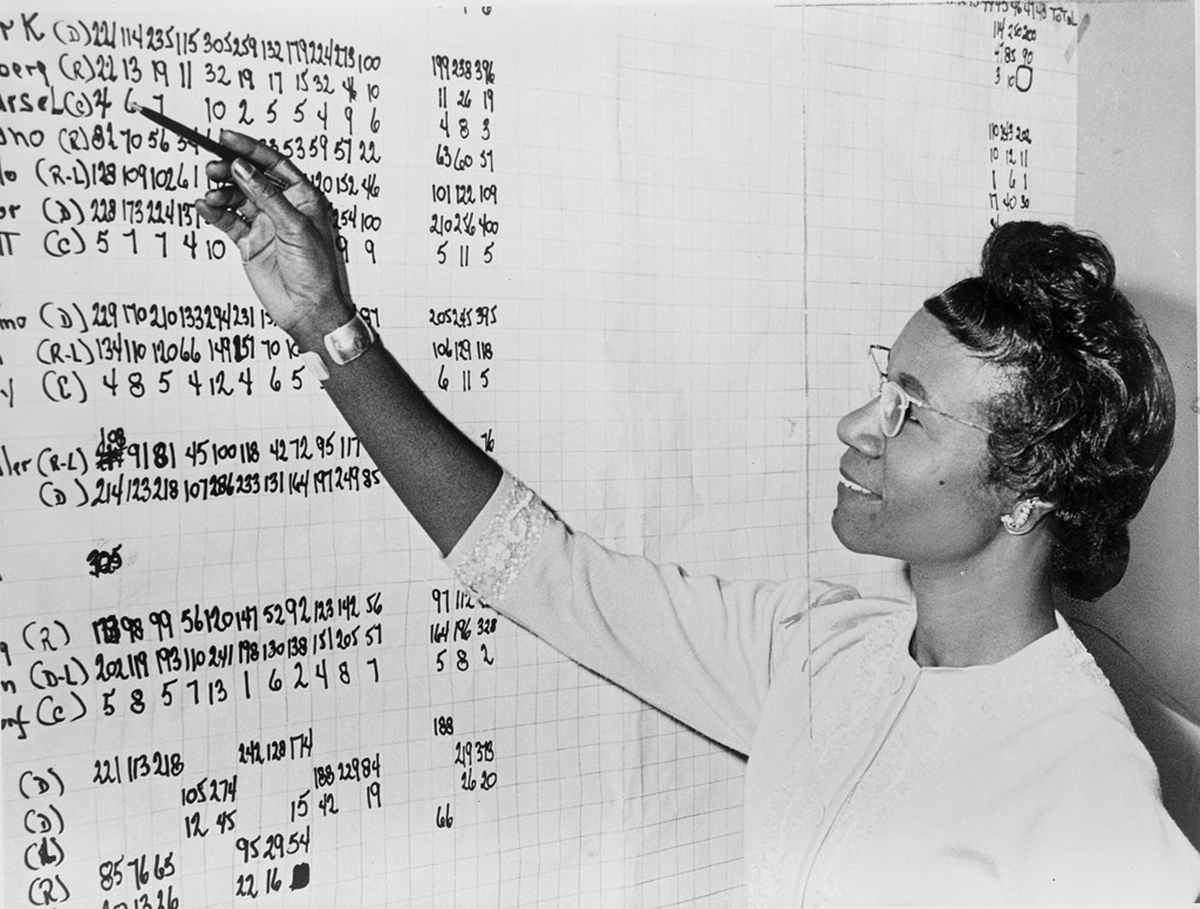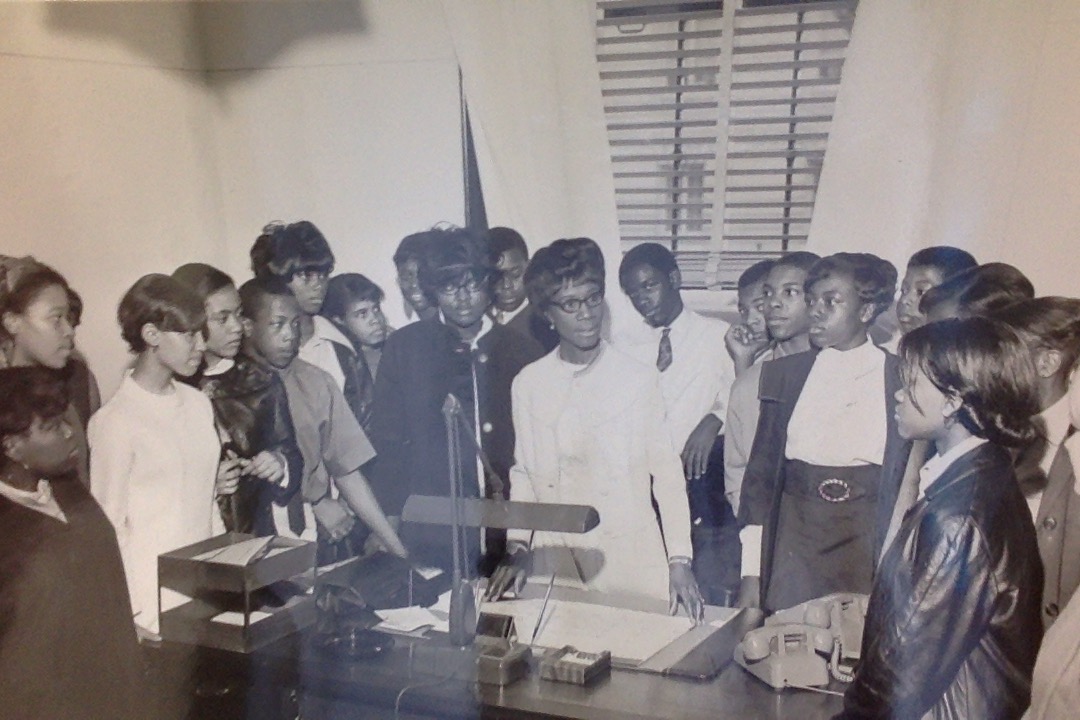"Double-Handicapped":

Courtesy Of www.amercianradioworks.publicradio.org
Growing up, Shirley Chisholm was successful in school in Brooklyn, New York. While in college, Chisholm joined the debate team and was encouraged by her professors to consider a career in politics. However, she felt she was “double-handicapped” being both a woman and a minority.
"Law, medicine, even nursing were too expensive, and few schools would admit black men, much less a woman. Social work had not yet open to blacks in the early 1940's... I had already decided to become a teacher... No matter how well I prepared myself, society wasn't going to give me a chance to do much of anything else."
~ Shirley Chisholm, "Unbought and Unbossed"
After graduating from Columbia University, Chisholm went into teaching and became the director of the Hamilton-Madison Child Care Center and later an educational consultant for the New York City Bureau of Welfare. While doing this work, she became even more aware of the barriers women and African-Americans faced. This led her to get involved with the League of Women Voters, the NAACP, and the Democratic Party in Brooklyn.
"In 1959 I left the Hamilton-Madison Center to become a consultant to the City Division of Day Care. It was my job... to promote the development of day care centers... and talks to convince community leaders that the city's children need more and better care facilities. But in 1960 - I suppose it was inevitable - I was drawn back into politics"
~ Shirley Chisholm, "Unbought and Unbossed"

Courtesy Of aileencarson.wordpress.com
In 1964 Chisholm decided to run for representation of her district in the state legislature, primarily campaigning for equal educational opportunities for minorities. She was elected and during her 2 terms, she passed 8 bills. She helped acquire unemployment benefits for domestic workers and pioneered educational opportunities for inner-city youth programs like SEEK (Search for Education, Elevation, and Knowledge). Realizing she was making a difference, she yearned to do more to break the shackles of discrimination and decided to pursue a higher role in politics.
Courtesy Of www.youtube.com

Courtesy Of www.nytimes.com
Lilly Smith & Sarah Ragoonanan Junior Category - Group Website Word Count - 1193 Process Paper Word Count - 486 Media Time - 3:53